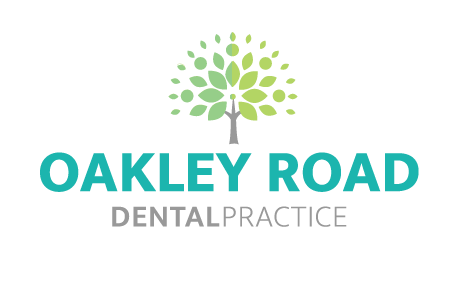Managing Diabetes and Dental Problems
Everyone knows that keeping your teeth, gums and mouth healthy helps to improve your overall health and wellbeing. But did you know that this is particularly important if you have diabetes, as you are at a higher risk of developing oral health issues such as gum disease, dry mouth, dental decay, oral thrush and infections?
Here at Oakley Road Dental Practice, as part of National Diabetes week, we will be highlighting the benefits of healthy living and offering dental support and advice to those who are dealing with all types of diabetes on an everyday basis.
Diabetes and your oral health
4.7 million people in the UK have been diagnosed with diabetes. That’s enough to fill Wembley Stadium 52 times over, and with figures predicted to reach 5 million in 2020, it is important that we understand the implications of living with this disease.
Diabetes is connected to a number of serious medical conditions such as kidney failure, strokes and heart attacks, but it can also have detrimental effects on our oral health.
Keeping your teeth, gums & mouth healthy is particularly important if you have diabetes, as research has shown that high blood glucose levels can increase the risk of developing gum disease, dry mouth, dental decay, oral thrush & dental infections. In fact, if you have Type 2 diabetes, you’re three times more likely to develop periodontal disease than someone without, but by controlling blood glucose levels, these risks can be minimised.
Gum disease
Too much sugar in your blood can lead to more sugar in your saliva, which ultimately helps to create bacteria in your mouth. This bacteria then goes on to produce acid which attacks your teeth’s enamel and infects the gum line. Left untreated, gum disease can cause bad breath, pain, bleeding of the gums, make chewing difficult and even result in tooth loss.
And the bad news does not stop there, as the above situation can also work vice versa. Gum disease and infection can, in turn, increase your blood sugar levels, and lead to other complications like cardiovascular disease.
Oral thrush
People with diabetes are also more at risk of oral thrush. The yeast fungus, Candida albicans, that causes oral thrush is often present without causing problems. However, a change in the environment of the mouth, such as high sugar levels, a dry mouth or increased amounts of glucose, can make favourable conditions for thrush to thrive.
Symptoms may include redness, soreness of the lining of the mouth and cracking at the corners, although in some instances there aren’t any symptoms until it is diagnosed at an oral examination.
Dry mouth
A dry mouth is more frequent in patients with diabetes, and although it is unknown exactly why, some professionals put it down to the result of dehydration, the side-effects of medication and constantly breathing through the mouth.
Problems caused by dry mouth include increased plaque, fungal infections, dental decay, thinning or peeling of the lining of the mouth, reduced ability to chew, difficulty in swallowing and impaired taste sensation.
Diabetes and Oral Health: What to watch out for!
Whilst the warning signs of diabetes are difficult to ignore, the connection to your oral health is often overlooked. Below are some tell-tale signs you should look out for:
- Sore, swollen or bleeding gums
- Eroding of the gum line
- Thrush, bad breath or other fungal infections
- Prolonged healing of sores or open wounds
- Loose or sensitive teeth
- Dry mouth or burning sensations
- Loss of taste buds
- Jaw or facial pain when eating
If you are concerned about any of the symptoms listed above, please get in touch with us today at our private dental practice in Southampton, and we can book you in for a full dental check-up. Failure to act straight away could lead to serious implications for the future.
Our top tips for improving your oral health
Although you should always check out the reasons why you may be suffering with the above symptoms, there are certain remedies you can try yourself to attempt to improve your saliva production.
Try swapping sugary drinks and those that are high in caffeine for a cold glass of water. Pile your plate with plenty of high-fibre fruit and vegetables and remember to floss (the dental not the dance variety!) after every meal. Use a toothpick to gently scrape away any soft plaque that is covering your teeth and remember to brush them at least twice a day. Finally, chew on some gum or suck a mint and you’ll not only benefit from increased saliva flow but a minty, fresh breath.
Just how clean are your teeth?
We all know that in order to ensure our teeth stay in tip-top condition that we should brush them both day at night. However, in order to properly maintain both oral and general health, it is imperative that you schedule regular routine check-ups with both your dentist and hygienist.
Our in-house hygienists are passionate about educating patients on their oral health. From in chair teeth cleaning demonstrations to comprehensive treatment plans and informative YouTube videos, every appointment is tailored to our patient’s needs.
If you have diabetes or any other medical condition, then please let our dental team know and together we can avoid complications and maintain good oral health standards.

